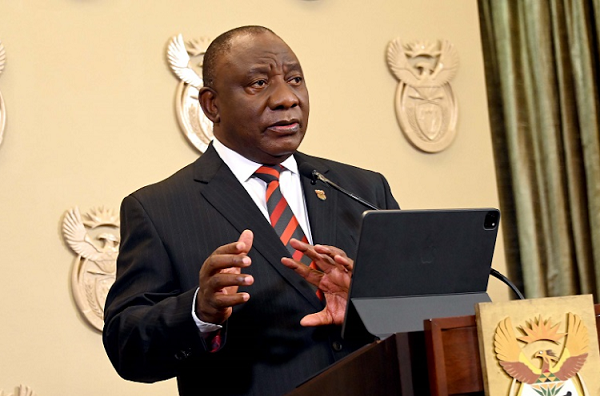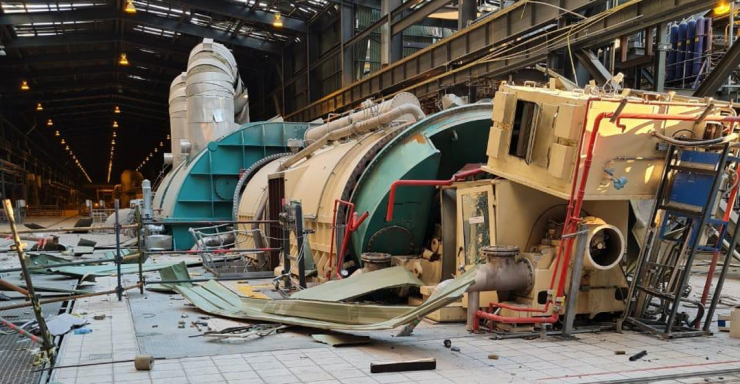

Founder: Turnaround Talk
One of the major announcements that came from last nights SONA is that under fire President, Cyril Ramaphosa, will be appointing a Minister of Electricity.
Will this benefit a company that is already facing significant levels of distress? Many experts are sceptical about the appointment.
Three minister detail
The News24 article points out that Experts have slated President Cyril Ramaphosa’s plan to appoint a minister of electricity – which means three ministers will now be working with Eskom.
Ramaphosa’s State of the Nation Address this year focused heavily on interventions for the power crisis, which comes as no surprise given that the country has experienced more than 100 days of continuous load shedding.
The article adds that Ramaphosa announced a national state of disaster, which was gazetted on Thursday evening.
“The state of disaster will enable us to provide practical measures that we need to take to support businesses in the food production, storage and retail supply chain, including for the rollout of generators, solar panels and uninterrupted power supply,” Ramaphosa said. Under the state of disaster, critical infrastructure like hospitals and water treatment plants would also be exempt from load shedding – if technically feasible.
Importantly it would also accelerate energy projects by limiting regulatory requirements. Ramaphosa said that “rigorous” environmental protections, as well as procurement processes and technical standards, will still be adhered to.

Photo By: Supplied
A welcomed announcement
The article points out that the state of disaster was welcomed by labour federation Cosatu. “We can’t grow the economy with 10 hours of load shedding,” said the federation’s parliamentary coordinator Matthew Parks. What matters now is implementation, and Cosatu wants to see a six-month turnaround and not something that will take another two years.
Hugo Pienaar, Chief Economist at the Bureau for Economic Research, said the state of disaster could have a positive impact in expediting some things like environmental impact assessments, but it is not clear whether it means new generating units would be added to the grid quicker. “It is a significant announcement, but at this early stage, it is not 100% clear how it will help us.”
Scepticism grows
The article points out that apex business organisation, Business Unity South Africa (BUSA), raised concerns that the mishaps and corruption of the Covid-19 state of disaster would be repeated. Ramaphosa said that this time around, the Auditor-General would be monitoring expenditure to “guard against any abuses of the funds” needed to address the crisis.
“It must be seen as a low point in the life of our society that mismanagement and lack of governance has created circumstances in which a state of disaster has to be declared,” BUSA noted.
The article adds that, similarly, Peter Attard Montalto, managing director of economic consultancy Intellidex, considers the state of disaster “unnecessary” and a “political fig leaf”. He also pointed out its potential to be a “free-for-all for corruption”.
“The ultimate problem here is political – not policy nor really procurement,” Montalto said. The political problem is made worse by Ramaphosa’s announcement that a new minister of electricity will be appointed, he added.
This minister will be based in the presidency and will focus specifically on responding to the electricity crisis. The minister will also work with the Eskom board and management to end load shedding and ensure the energy action plan is implemented.
The article points out that Eskom will also still report to the minister of public enterprises, who will oversee the utility’s unbundling and the implementation of the just energy transition programme.
Three ministers
But a third minister is two more than necessary, noted independent energy analyst Chris Yelland. “We now have three ministries involved in one way or another in electricity. This could complicate the governance process significantly,” he said.
Apart from the department of public enterprise, Eskom also deals with the Department of Mineral Resources and Energy (DMRE), which manages regulations that affect Eskom, and National Treasury, which handles the purse strings.
“The governance of electricity has been complicated in the past, and now it has got more complicated. That can be a recipe for conflict, pulling [Eskom] in different directions,” said Yelland. BUSA also noted that a third minister would add confusion and possibly “turf wars” rather than solving the crisis.
Pienaar says whoever is appointed should not have “vested interests” in a particular energy technology, like coal for example.
It should be someone technologically agnostic and who is objective about the solutions to be implemented.
Yelland believes it should be someone who knows “a helluva lot” about electricity.
What was clear from the president is that Eskom won’t be shifting to the department of resources and energy and its minister, Gwede Mantashe, any time soon.
The president’s announcement of a tax incentive to support the rollout of rooftop solar PV by households and businesses was welcomed across the board.
Eskom spokesperson Sikonathi Mantshantsha said the utility is still studying the details of the state of disaster, gazetted on Thursday evening before it could comment on the latest announcements. As for the appointment of a new minister, Eskom is “unable” to comment on any policy decisions, he added.

Photo By: News24
Will there be benefits?
South Africa has often been criticised over its fondness for political patronage. Economies three or four times the size of South Africa is efficiently run by cabinets significantly smaller than South Africa’s.
Will the appointment of a new minister benefit the country?
Let’s get the obvious question out of the way…who will this minister be? Further, will they be motivated to achieve the directives given to him from up high? A quote from Ridley Scott’s Gladiator comes to mind: politics is old men talking with very little action.
As alluded to, the minister needs to come with an actionable plan that is different to those we have heard before. Further, certain KPI’s need to be met:
- The unbundling of Eskom needs to start. There also needs to be a date by which this implementation will take place;
- IPPs need to be onboarded as a matter of urgency. Further, pricing guidelines need to be established so that electricity remains affordable for the majority of the population;
- Eskom needs to reduce its workforce who can be absorbed by IPPs. Retrenchment from Eskom does not necessarily mean complete unemployment.
Achieve this, and the skepticism outlined above will be quickly forgotten.




